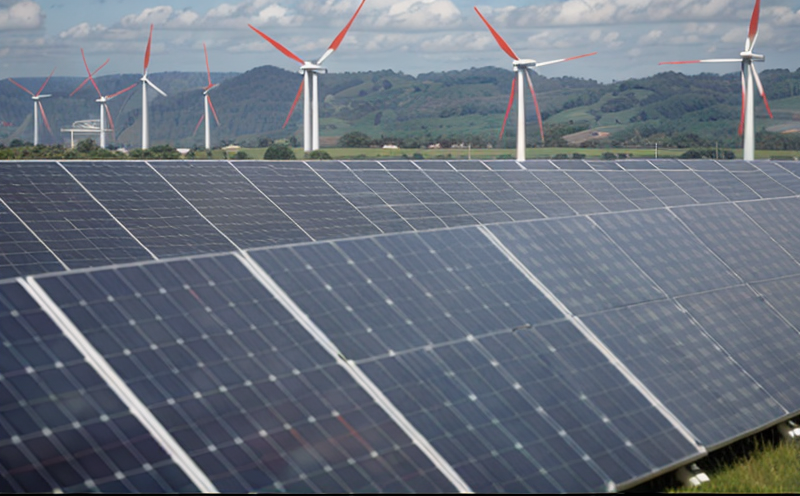Biomass Combustion Emission Testing
The process of biomass combustion is a critical component in renewable energy systems that generate electricity, heat, or biofuels. However, the emissions from these combustion processes can have significant environmental impacts if not controlled properly. Biomass Combustion Emission Testing ensures compliance with regulatory standards and helps optimize system performance by identifying emission sources that need improvement.
Biomass is a versatile fuel source derived from organic matter such as wood chips, sawdust, agricultural residues, and other plant materials. When combusted in boilers or combustion engines, it releases various gases including carbon dioxide (CO2), nitrogen oxides (NOx), sulfur dioxide (SO2), particulate matter (PM), and volatile organic compounds (VOCs). Proper emission testing ensures that these emissions do not exceed permissible limits set by environmental regulations.
The testing involves the collection of flue gas samples from biomass combustion units. These samples are then analyzed using various analytical techniques such as gas chromatography, infrared spectroscopy, or gravimetric analysis to determine their composition and quantify different pollutants. The data obtained is used to assess compliance with local, national, and international emission standards.
The primary goal of this testing service is to provide reliable, accurate, and actionable insights that help stakeholders in the renewable energy sector meet environmental protection goals. By conducting comprehensive emissions tests, we assist clients in optimizing combustion processes, reducing operational costs, and minimizing adverse environmental impacts.
Our team of experienced professionals uses state-of-the-art equipment and adheres strictly to recognized international standards like ISO 14067:2019 for Greenhouse Gas Emissions from Organizations. This ensures that our results are credible and can be trusted by regulatory bodies and other stakeholders.
Applied Standards
| Standard | Description |
|---|---|
| ISO 14067:2019 | Greenhouse Gas Emissions from Organizations |
| ASTM D5338-93(2018) | Determination of Carbon Dioxide, Carbon Monoxide, and Oxygen in Flue Gases by Non-dispersive Infrared Analysis |
| EN 14675:2008 | Emission of Air Pollutants from Stationary Combustion Plants |
| IEC 62301-2 | Performance Testing of Biomass Boilers |
Why Choose This Test
- Compliance with stringent environmental regulations.
- Identification and mitigation of emission sources for continuous improvement.
- Optimization of combustion processes to enhance efficiency and reduce costs.
- Reduction in operational risks associated with non-compliance fines or penalties.
- Accurate data that supports decision-making for sustainable practices.
Quality and Reliability Assurance
We employ rigorous quality control measures to ensure the accuracy of our emission testing results. Our laboratories are accredited by relevant national accreditation bodies, meeting ISO/IEC 17025 standards for technical competence in testing and calibration services.
The process starts with meticulous sample preparation followed by precise measurement techniques tailored to the type and concentration of pollutants present. Calibration checks are performed regularly using certified reference materials to maintain consistent accuracy throughout all tests.
Our reporting format adheres strictly to international guidelines, providing clear interpretations along with detailed descriptions of methods used, results obtained, and recommendations for further actions based on findings. This comprehensive approach ensures that our clients receive valuable information they can act upon confidently.





